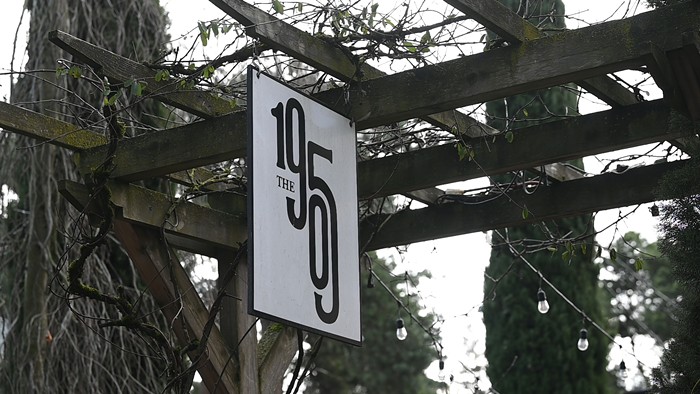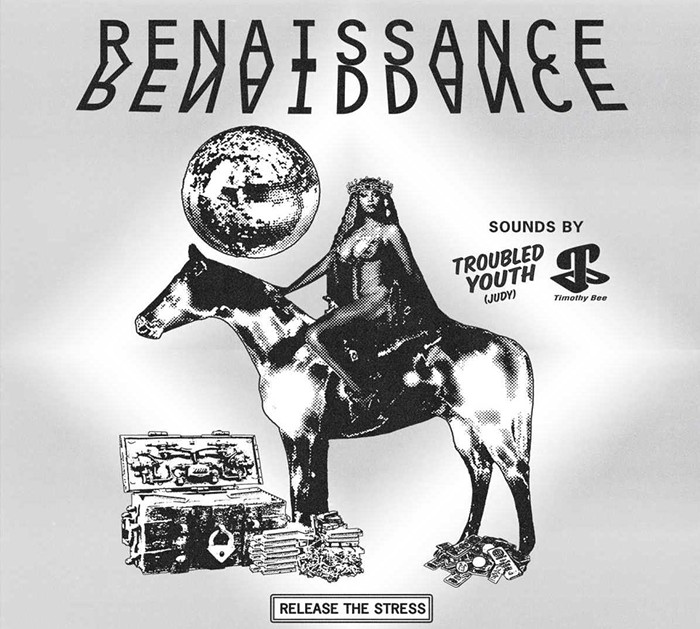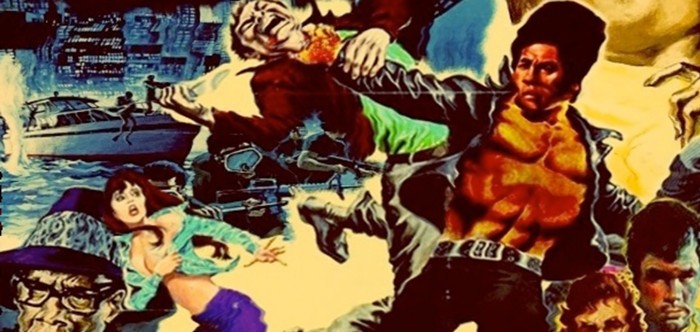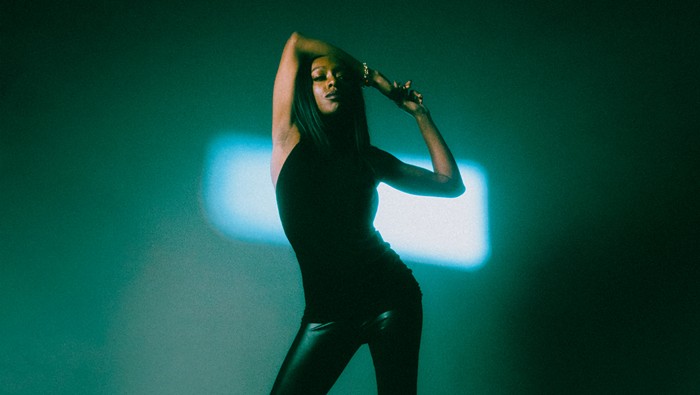Despite his stage fright, Rasheed Jamal always seemed to find himself in the spotlight as a kid: in a class for gifted students, being asked to write poems and perform in after-school plays, and—as the only Black kid available—even tapped to perform a rap song for his school’s 92nd anniversary celebration. “I didn’t know shit about rapping,” Jamal says. “Legitimately bro, I just acted like Kahlil from Bébé’s Kids and ended up on the front page of the paper for rapping.
During one Thanksgiving weekend, Jamal went to Houston with his granddaddy, where his cousin Patrick had a CD player with a tape recorder. During black Friday, they bought a Cash Money instrumental CD at the mall. “He put a blank tape in there,” Jamal says. “And I didn’t want to rap, I had that block where I didn’t want to, you know, look stupid. And [Patrick] started rapping about me being scared to rap. It felt too much like a challenge man, so we was up until like two or three o’clock in the morning rapping. And after that I got bit with the bug.”
Having studied important projects like Jay-Z’s The Blueprint and Nas’ Stillmatic, Jamal learned how to program beats, mix, and record on his own. He would often skip his seventh period to go work in the studio. “My creative brain kicked in a lot,” he says. “I turned towards hip-hop and what was going on. Lil’ Flip was my favorite rapper and he was all about freestyling so I always wanted to freestyle, I always wanted to go to the party and show folks I can do this, I can do that.”
Today, Rasheed Jamal’s live performance continues to flourish, often setting him apart from his peers. After forming the Resistance crew with fellow Portland rappers Mic Capes and Glenn Waco, Jamal estimates he’s played at least a couple hundred live shows since moving here from Hot Springs, Arkansas, in 2008. Jamal’s technical prowess consistently shines as he meticulously delivers lyrics at a mile a minute, switching up his flow often, and impressing everyone within earshot.
“I was inspired by Pac and the stories I would hear about Pac growing up, saying he’s a really fast writer,” Jamal says. “He knew what he wanted to do and he was ready to go. Me, I just wanted to get better, [and] the only way to get better is to write more songs. It probably cost me, and still does cost me, social points, ’cause I’m not necessarily the one who comes around and bullshits with everybody all the time. But I got a lot of fuckin’ music that I put out.”
After two lead singles (the excellent “Glory, Glory” and “Bumpin’ UGK”) he released Messiah Complex (on Bandcamp) on September 24, his sixth full-length project and the follow-up to 2017’s Indigo Child. On this new album, Jamal gets more vulnerable than ever.
“I feel like on my old joint I gave a lot of different feelings on different songs so [people] weren’t sure how to feel about it in the end,” Jamal says. “Because in one way I’m showing you: Okay I have this amount of rage, and in another way, I’m just rapping my ass off because I feel like rapping my ass off. I feel like with this one,” he says, “it’s more like dealing with a person rather than an entity or a rapper.”
On album opener “Gridlock’d” (“Life is a traffic jam”), Jamal raps about heavy topics like losing a child when he was 23. On the title track, Jamal’s lyrics explore the journey that brought him to Portland over a bass-driven West Coast-style beat by King Corn Beatzz. Other highlights include the warm and blissful “Closer to Light”; “Come Over,” a sultry and romantic song geared toward the ladies that sees Rasheed Jamal talking to his girl on the phone while on his way to her place; and album closer “Up in Smoke.”
Recorded four years ago, “Stalker Bitch” is about Jamal’s experience with a stalker, who apparently suffers from mental health issues. “I wasn’t even going to put that song out,” he says. “I was going to leave it where it was.” Over ominous production, Jamal raps from the perspective of a stalker about making suicidal and homicidal threats, writing creepy/obsessive social media messages, cussing out his girlfriend, and much more. “I performed [“Stalker Bitch”] once, and it left the crowd fucked up, and it was kind of hard to recover my set after that. So, I’ll never do the song anymore. But it’s kind of the whole situation that’s really wack, but it’s true.” While stalking is something Jamal is still dealing with, he says it’s not something he dwells on in his personal life. Jamal also says he’d like to see the hair-raising song get a short film treatment, since the issues presented in the song’s lyrics are things that a lot of folks deal with.
“When you look at social media, there’s regular, well-adjusted people who wake up every day and snoop on people’s profiles,” Jamal says. “[They] secretly keep up with different people’s stuff—see where they be going, and see who they be with, and see who they get tagged in photos with, what they comment on, what they like.”
Jamal says the album’s title “is a diagnosis on the masses.... I think everybody feels like they’re the one right now. It’s funny because my last album, Indigo Child (You Ain’t the Only One), is kind of like a version of that—everybody feels like an indigo child.”
Jamal says Messiah Complex also refers to how “people need somebody to follow.” On a personal note, Jamal says it’s also tied to something he learned after his grandfather passed away.
“I realized: It ain’t my job to save everybody. I feel like that weighed heavy on my mind for a long time. But when I realized it was time to let him go, I had to reassess and put my priorities in the right place. And start living differently as a man and start doing things differently.
“I really want my music to be something people relate to, and I want my music to be something people turn to the way I turn to the different musicians I relate to,” Jamal continues. Messiah is a great effort toward serving that intention. Jamal is now at a point in his music career where he just wants to be himself. Recently, he had a handful of songs (including “Bumpin’ UGK”) appear on the soundtrack for U Shoot Videos?, a film by Morgan Cooper, the director behind that fake Fresh Prince of Bel-Air reboot trailer that got Will Smith’s stamp of approval. When asked if he plans to stay in Portland, Jamal says that while a part of him is interested in moving back to the South, he’s not going anywhere anytime soon.
“I want to say thank you to Portland, to the Northwest, to the West Coast, to people in the community and people in the Black creative community, people in every creative community. A lot of us work really hard to do what we do and try to match a certain standard that’s impossible for one person to achieve. I appreciate the overall learning experience that I’ve had since I moved here, and all the love and support and loyalty on the part of the people who became a part of my audience. And then also, publications that got behind me early on—and the Mercury was the first one I got written about in. I couldn’t have imagined that I would move somewhere and become somebody that people look at as an important artist here. And I really appreciate that.”




















